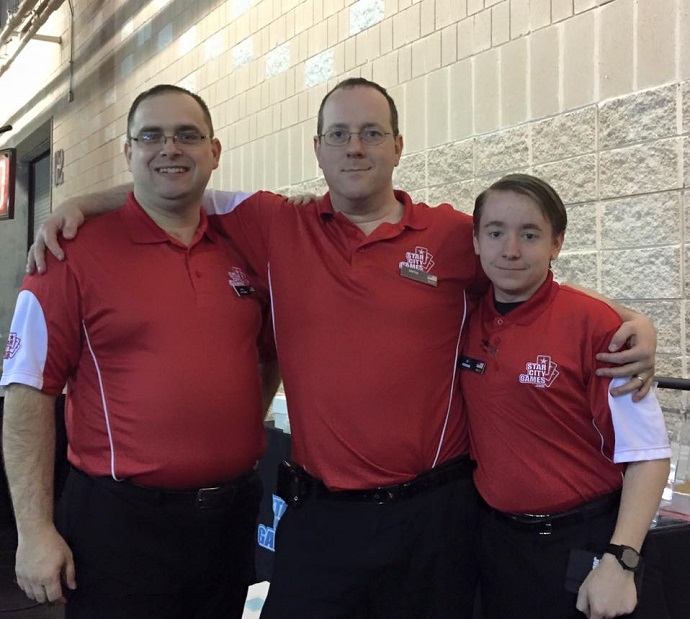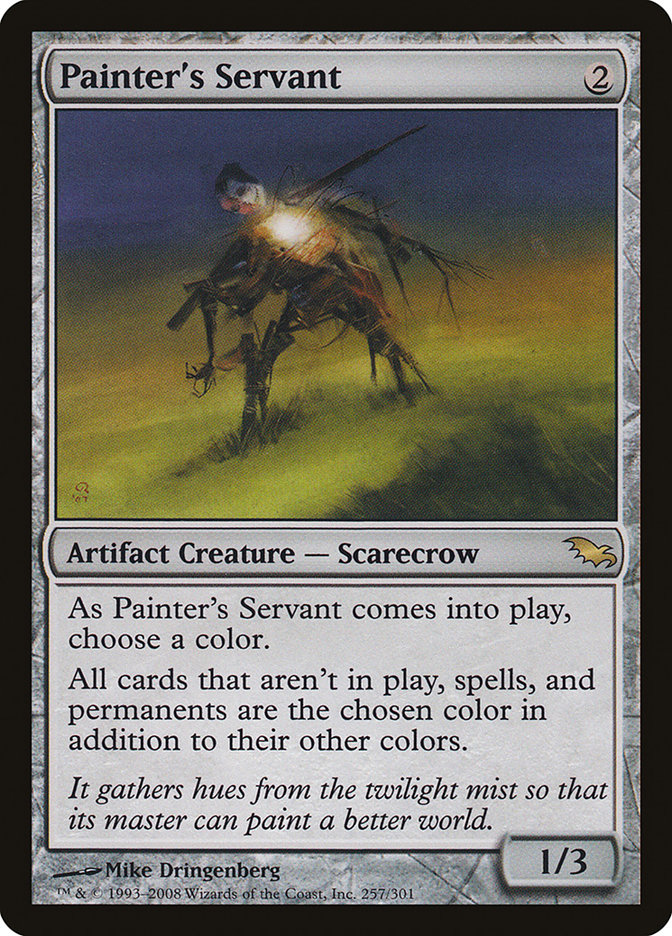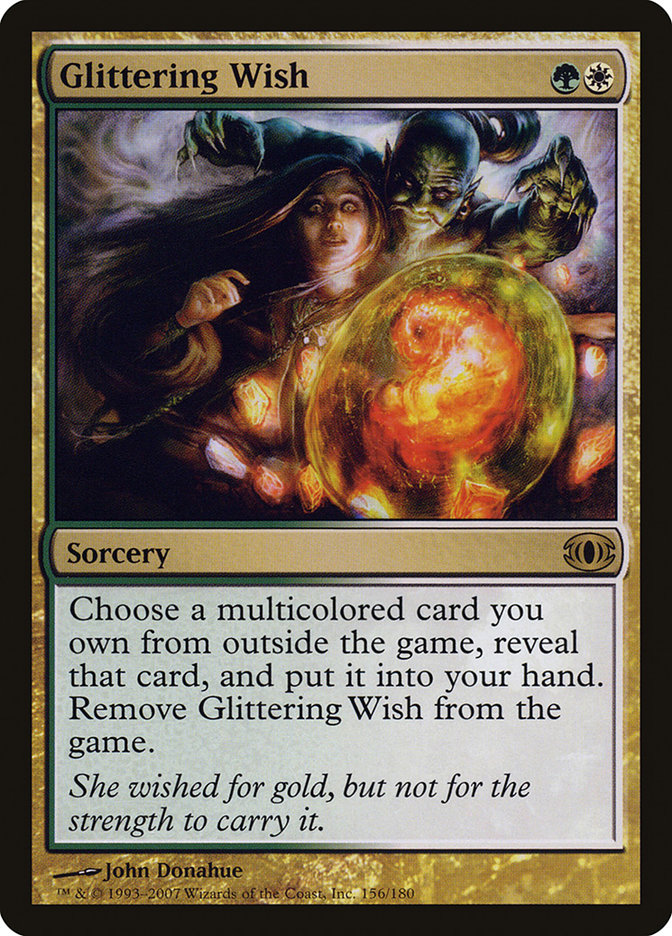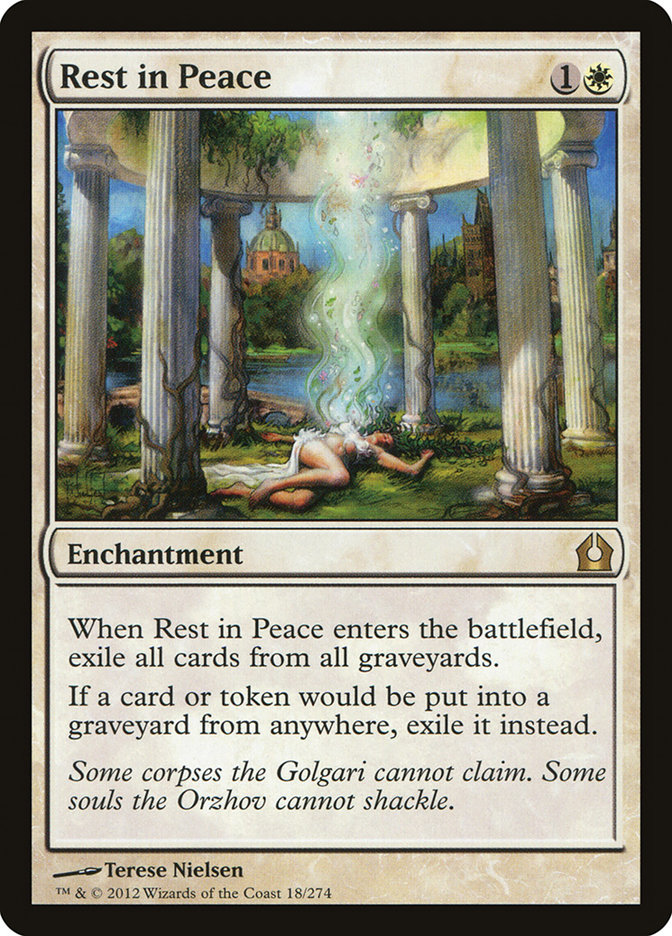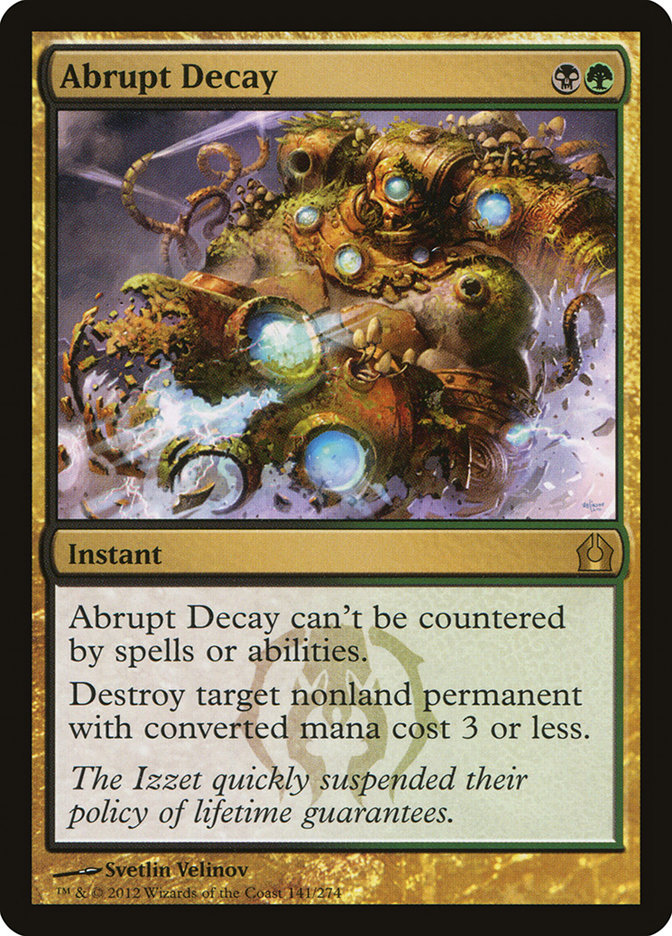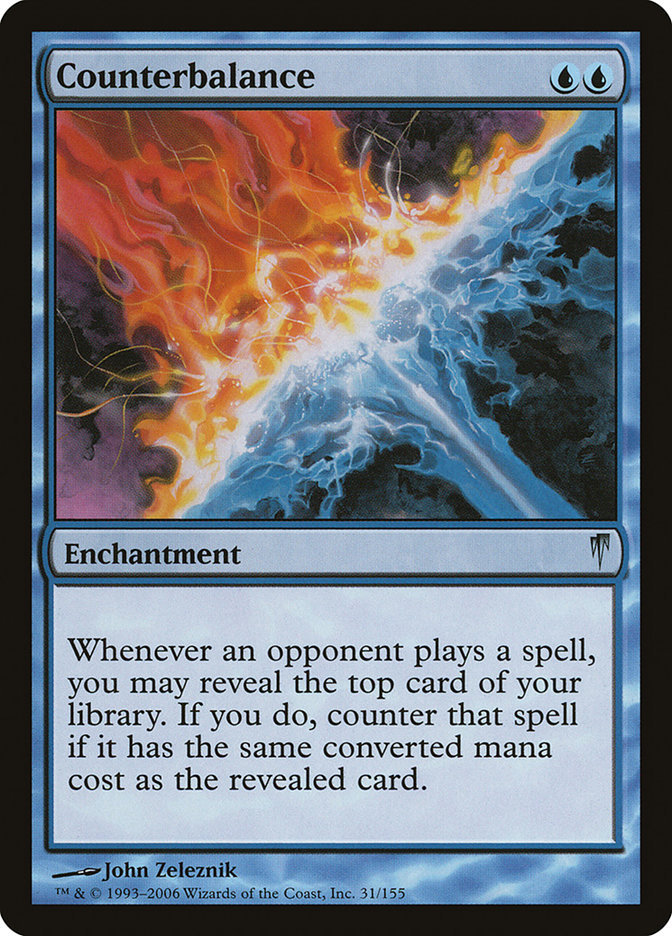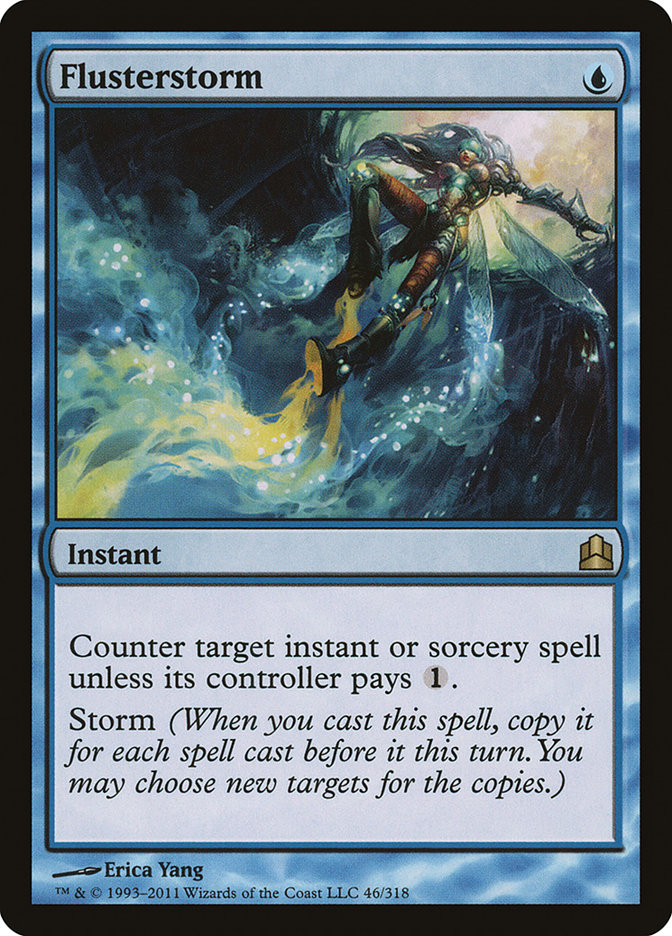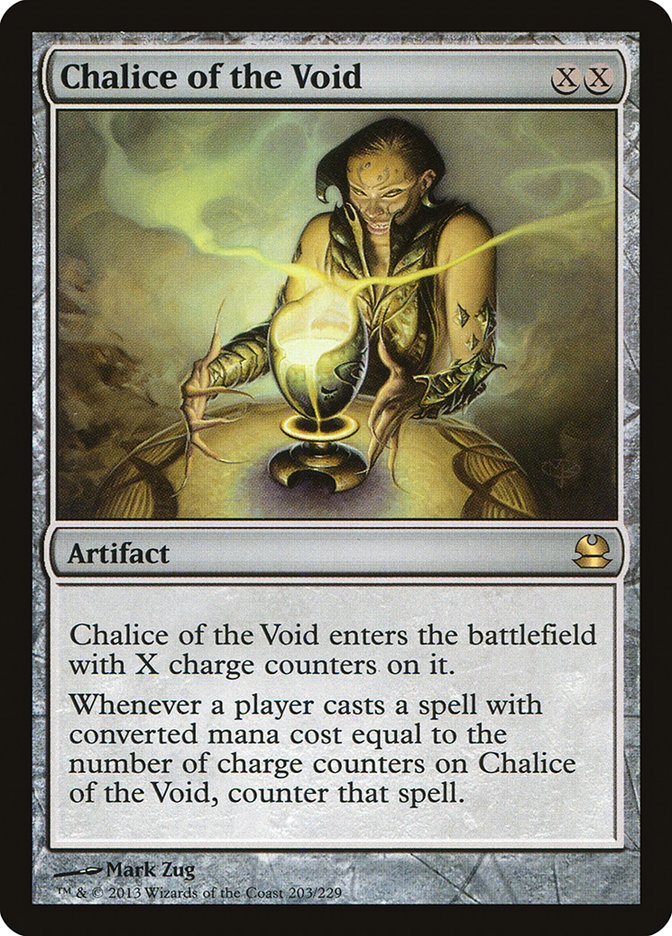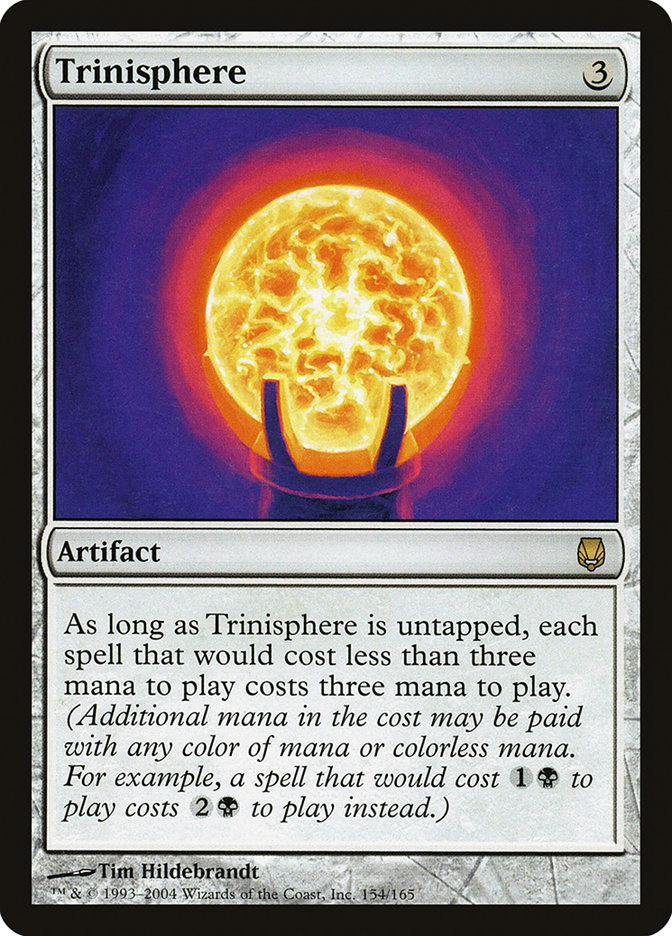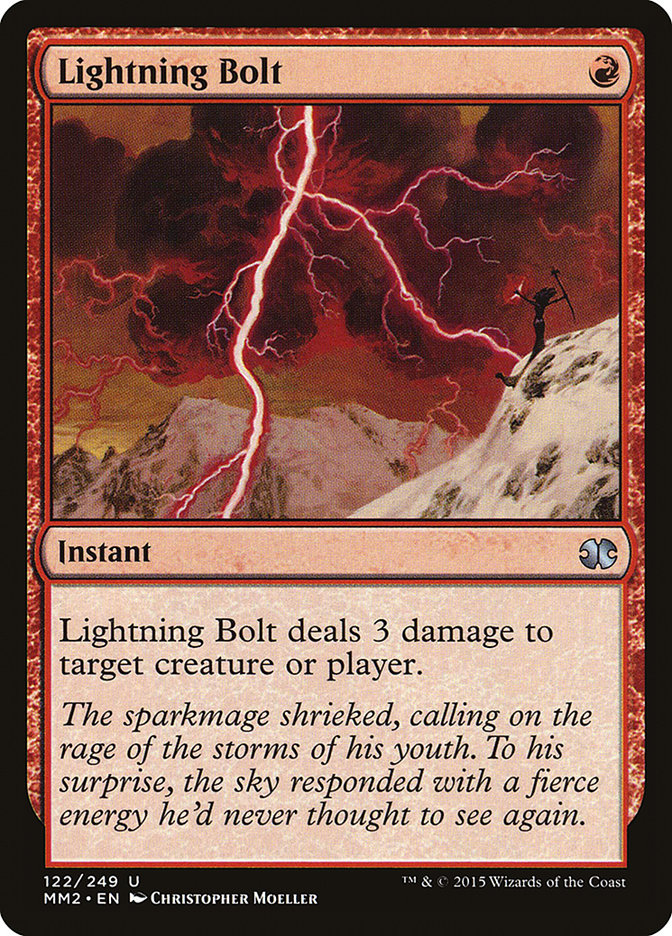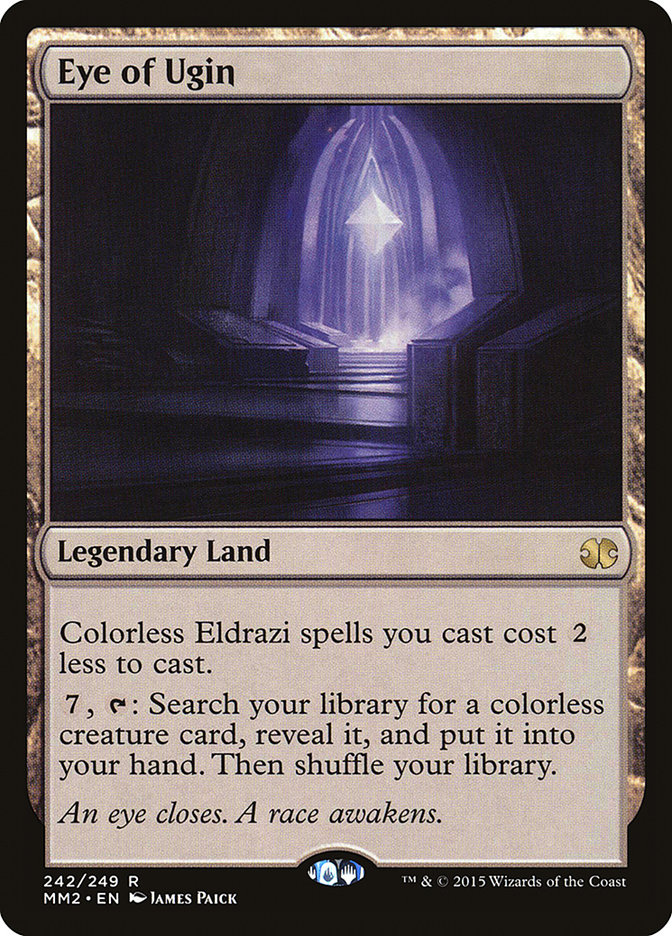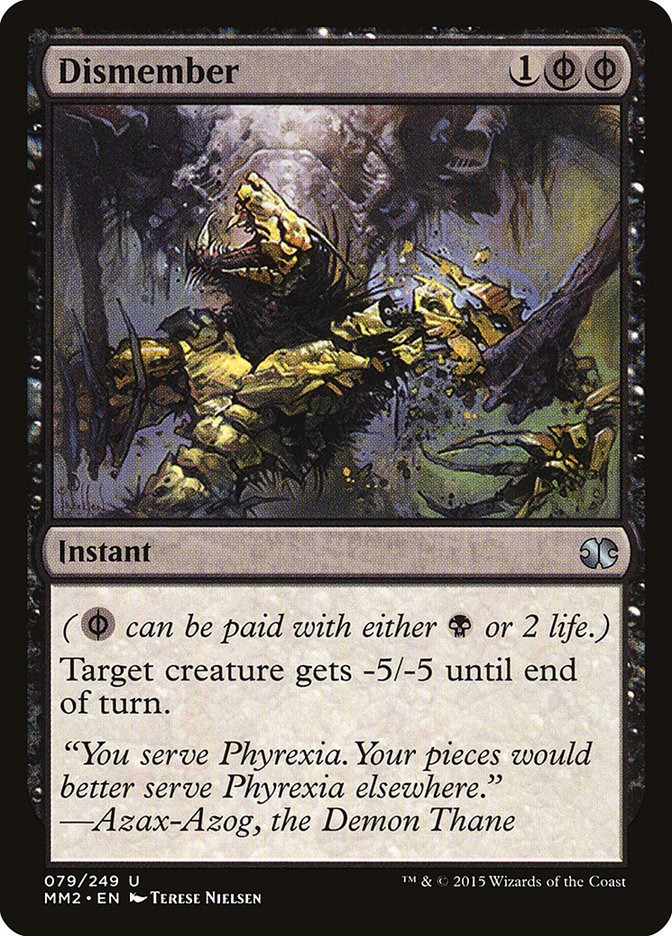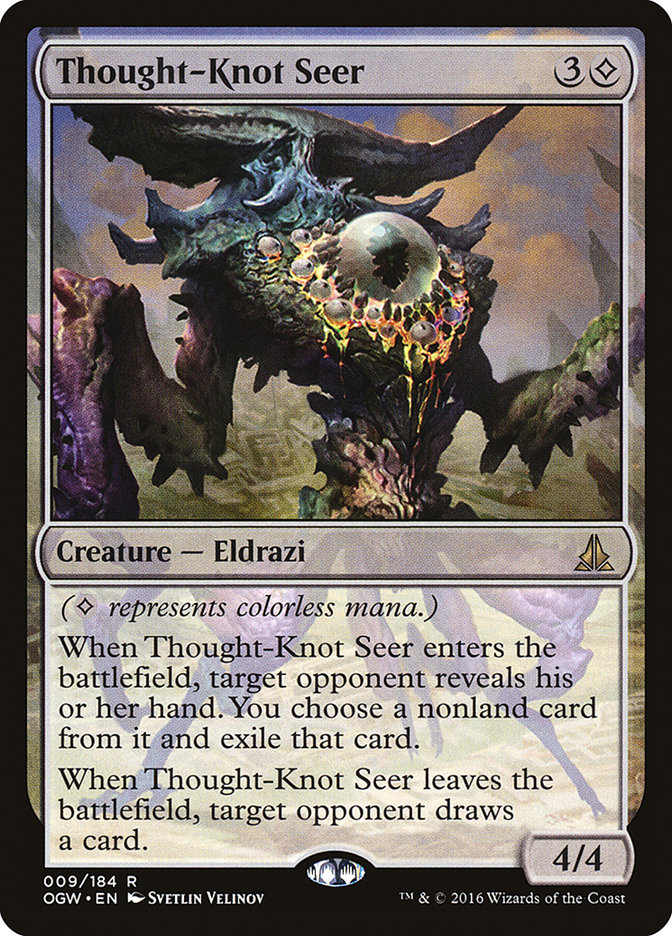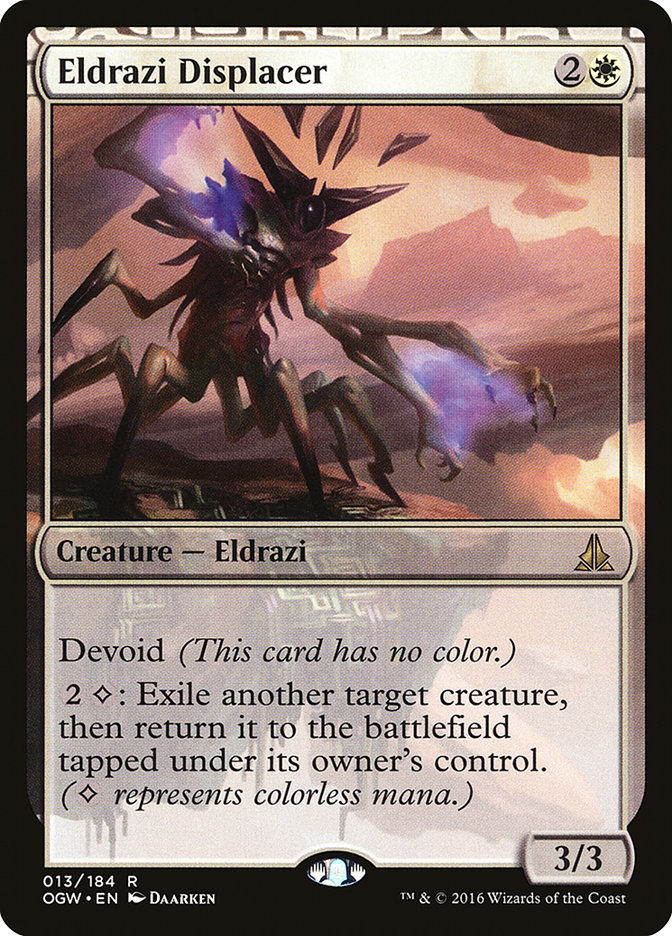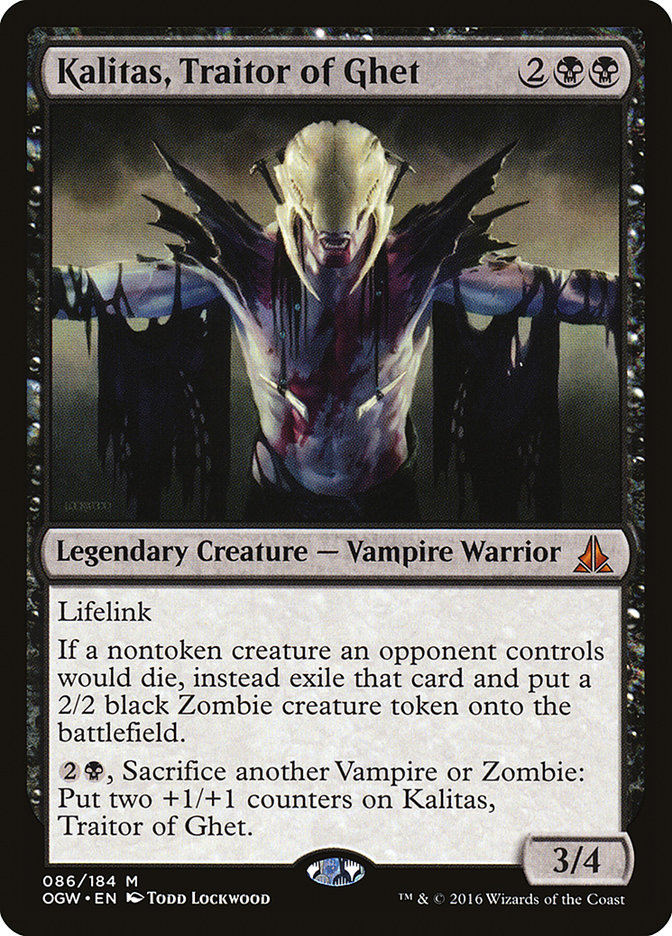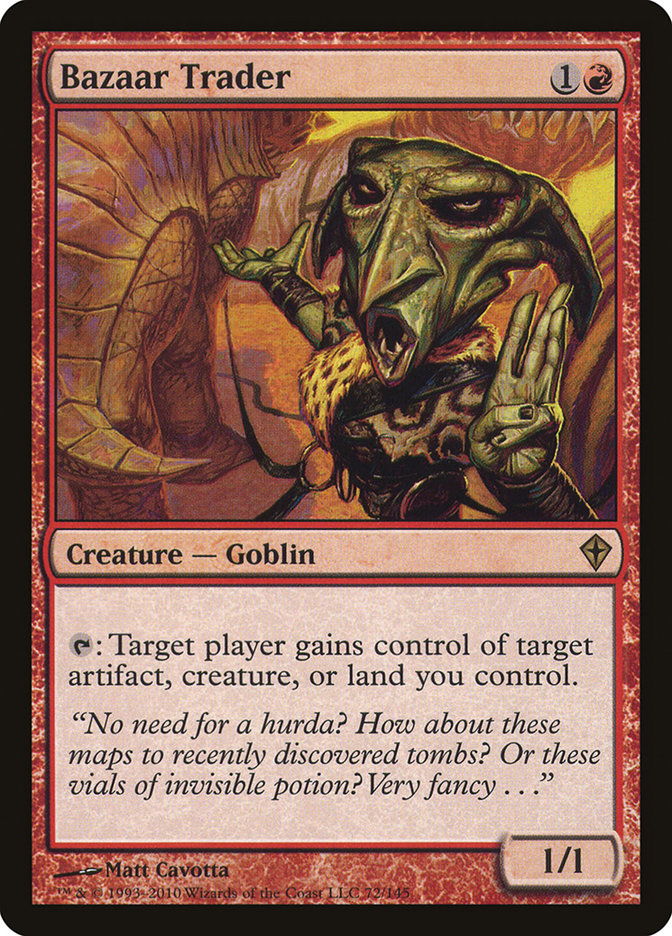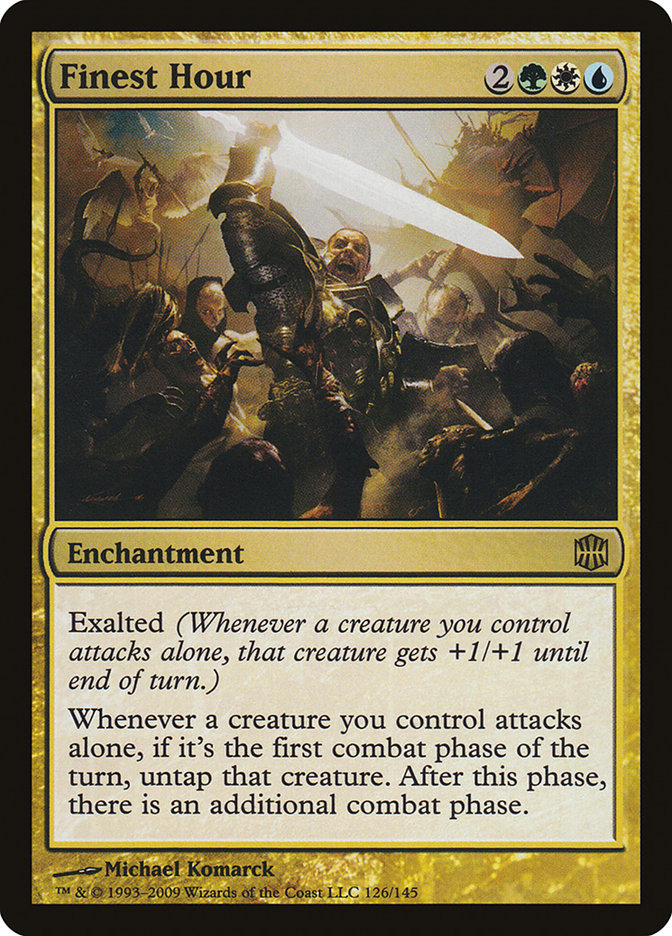One of those Head Judge spots was at #SCGPHILLY as Rick took the helm of Sunday’s Modern Classic. With that in mind, it was only fitting to invite Rick to be this article’s special guest. As always, he’s going to help me break down a variety of rules questions that are relevant to both Modern and Legacy. So let’s get right down to it!
How does Painter’s Servant affect cards in my sideboard? If my Painter’s Servant is naming black, can I use Glittering Wish to find a Stony Silence from my sideboard?
(Rick) Painter’s Servant adds a color to all cards in all game zones. However, your sideboard isn’t a game zone (it’s outside the game), so it isn’t affected.
My opponent has Rest in Peace. I cast Abrupt Decay on it. What happens?
(Rick) As Abrupt Decay is resolving, it will destroy Rest in Peace. Rest in Peace will be affected by its own replacement effect and will be exiled instead of going to the graveyard. The last step in resolving Abrupt Decay would be putting it in the graveyard; as Rest in Peace is no longer around to replace this action, Abrupt Decay does indeed go to the graveyard.
I have Counterbalance on the battlefield, and a Brainstorm on top my library. My opponent casts Flusterstorm. Can I reveal Brainstorm to counter all the Flusterstorm copies?
(Bearz) Sadly, no. Counterbalance only triggers when your opponent casts a spell. However, the copies of Flusterstorm are never cast; the storm trigger puts copies directly onto the stack. So you can use Counterbalance to counter the original Flusterstorm (the one represented by a card), but not any of the copies.
My opponent has a Chalice of the Void on 2, and I really want to use my Wear // Tear to blow up the Chalice. Can I?
(Bearz) Maybe! If you cast just Wear, your spell’s converted mana cost will be two, and Chalice of the Void will counter it. However, if you fuse Wear // Tear, your spell’s converted mana cost is three (the sum of the two halves), and you’d be able to dodge the Chalice. You can only do this if you can legally target an enchantment with Tear, though!
My opponent has a Chalice of the Void on one, plus a Trinisphere. Since my Lightning Bolt costs 2R now, is it still countered by the Chalice?
(Bearz) Unfortunately for you, your Lightning Bolt won’t strike anything but the graveyard. A card’s converted mana cost is determined by the mana symbols in the upper right of the card, not how much you’ve actually paid for it. So Lightning Bolt’s converted mana cost is always one, which means Chalice of the Void on one will always counter it, no matter how much you pay for it.
How does Eye of Ugin interact with Trinisphere?
(Bearz) Not very well. When calculating the total cost of a spell, you start with its base cost. Normally that’s the mana cost in the upper right corner (but it could be something different, like if you cast a spell with Flashback or kicker). Then you apply any cost increasers (like Sphere of Resistance) and cost reducers (like Eye of Ugin). Finally, if the total cost of the spell is less than three mana, you apply Trinisphere.
Since Trinisphere is always checked last, you can’t use Eye of Ugin to get around the Three-Ball’s effect. Sad times for Eldrazi Mimic.
How does Trinisphere interact with Dismember?
(Bearz) This one doesn’t work very well, either. Trinisphere cares about how much mana you’re paying for a spell…and paying two life is definitely not paying mana. So if you don’t have any way of producing black mana but Trinisphere is on the battlefield, Dismember will cost four life and three generic mana. Ouch!
I blink Thought-Knot Seer with Eldrazi Displacer. How can I order the triggers?
(Rick) We covered this in the last Ask a Judge too, but just like the Eldrazi themselves, it keeps coming up! You would get to choose the order to place the triggers on the stack, as they both want to be put on the stack at the same time. (Even though the Seer’s leaves-the-battlefield ability clearly triggers first, you can’t put it on the stack while you’re still resolving the Displacer’s ability. And the time you finish resolving the Displacer’s ability, the new Thought-Knot Seer’s enters-the-battlefield ability has triggered, too. Since both triggers are waiting, you can stack them in any order.)
If my opponent has a Kalitas, Traitor of Ghet and kills one of my creatures, do I have to remind my opponent to put a Zombie token onto the battlefield?
(Bearz) Yes, you do. Maintaining a clear and legal game state is both players’ responsibility. The major exception is that you don’t have to remind your opponents of triggered abilities they control.
Many players think that Kalitas’ Zombie-making ability is a trigger. But in fact, Kalitas doesn’t have any triggered abilities at all! (Triggers always include the word “when,” “whenever,” or “at” — none of which are present on Kalitas.) So in this case, maintaining the game state includes reminding your opponent that Kalitas makes a Zombie whenever he exiles one of your creatures.
Questions with Rick
What do you do outside of Magic?
My day job is in Software Support helping to sell beer, wine, and soda across the US. I’ve also been married for ten years and have two daughters (ages one and seven). Beyond this I like to play board games when I finally find free time.
What advice do you have for other judges? For players?
For judges: stay hydrated, wear good shoes, and get sleep. It’s far too easy for us to get wrapped up in the event or evening diversions and forget about caring for yourself. You are more useful to the players, your team, and yourself if you take care of yourself.
For players, I would ask them to keep track of their stuff. I’m not just talking about the unbelievable amount of stuff that ends up in lost and found, but also the stuff you genuinely no longer want. You are sharing a venue with tens, hundreds, or thousands of other people. Pick up your stuff, throw away your trash, and push in your chairs. It will make it better for the people sitting at that table next.
What was your first SCG Tour® event? Do you remember what it was like?
Events in general in the early days were very daunting for me. You are still finding yourself and your confidence. You cross paths with judges who are nearly mythical and you have a hard time justifying why you are there or that you would ever be nearly as good as them.
For me, it wasn’t too long before I realized that I was adding value to the event, and from there the sky’s the limit.
For SCG Tour® events in particular, I had already been judging for a few years when it came along, so it wasn’t as scary or difficult as the early days. Needless to say, I still see the same feelings in the eyes of new Judges at nearly every event.
Funniest or oddest judge call?
There have been a few over the years. The fun ones are when the players are genuine and need help. Just last weekend, I had a call where both players were playing with identical sleeves and all but identical decks. They had shuffled, presented, cut, and set the decks back down on the table to return to their owners.
Well, during this, the players were talking to each other and didn’t directly pick them back up. Thus I get called over to try to figure out which deck belongs to which player. They realized it was accidental and even a little humorous but didn’t know how to proceed.
What is Head Judging a Classic like? What about the Philadelphia Modern Classic in particular?
Head judging a Classic all depends on your staff. Sometimes you need to dot every I and cross every T. Other times, you can give your team leads or even your floor judges enough freedom to try things their own way and see what works.
I explained to my wife that head judging is more mentally challenging, whereas being a floor judge is more physically challenging. As a head judge you guide an entire event, you oversee every task, and at the end of the day you want to mentor and give feedback to much of your team. It can be a lot to juggle.
Philadelphia was on the easier side of events for me. My staff was very strong, which allowed me to believe that everything would be handled and handled reasonably well. Because I believed in my team, I allowed them all greater flexibility to make their own decisions. I may not have done everything exactly as they did, but in the end everything got done, and almost more importantly, everyone learned something.
What’s your proudest accomplishment as a judge?
Being entrusted to head judge sizable events and being invited back to do it again.
I often struggle with knowing that I could have done better instead of acknowledging that I did a good, or even great, job in the first place. Being invited back helps to validate that I didn’t screw anything up too badly the last time.
What’s your proudest accomplishment as a player?
It’s neat that you think I’ve accomplished anything as a player. I play very little competitive Magic, as I enjoy working the events too much to play in them instead. With that, I try to play Magic often for fun at FNM, Prereleases, or just with friends. Sure, I’ve occasionally won an event, but that is secondary as I’m really there to have fun.
You are very active in your local area but also regionally on The SCG Tour® and Grand Prix. What’s it like to go from these local events to enormous ones?
The biggest thing for me is remembering that while the local events are generally more casual and run at Regular, you still have to do the same job. You are still doing pairings, taking calls, and providing customer service. In some cases, you are still going to have to investigate and possibly disqualify players. While the events are vastly different at the core, you are doing the same job.
—
Thanks, Rick! Wise words as always. You did a great job in Philadelphia, and I’m grateful to call you a friend.
That’s all the time I have for today, but if you have more questions about Chalice of the Void, Trinisphere, or any other cards, you can always email me! Your questions might even be featured in a future column.
Also, as shadows gather over Innistrad and we prepare for a new set to release, I wanted to share a quick note about new cards. Weird new cards often mean weird new rules, but cards are previewed a few weeks before the official rules update is published. This means it’s not always clear how a new card will work. So if you see a new card and ask a judge about it, don’t be surprised if we tell you, “I don’t think I can answer that right now.” We just want to make sure we get it right!


